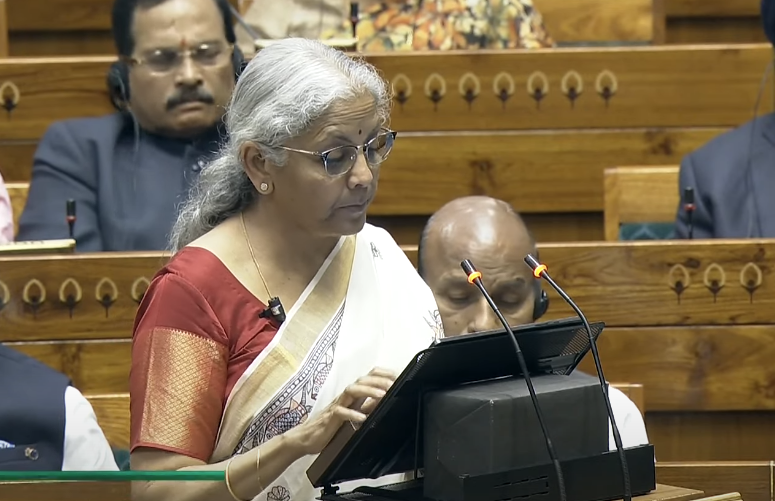Budget 2025: 35 additional goods for EV battery manufacturing to be exempted from customs duty, says FM
"To the list of exempted capital goods, I propose to add 35 additional capital goods for EV battery manufacturing, and 28 additional capital goods for mobile phone battery manufacturing. This will boost domestic manufacture of lithium-ion battery, both for mobile phones and electric vehicles," FM said in her Budget speech on Saturday.
“In the July 2024 Budget, I had fully exempted Basic Customs Duty (BCD) on 25 critical minerals that are not domestically available. I had also reduced BCD of 2 other such minerals to provide a major fillip to their processing especially by MSMEs,” Finance Minister Nirmala Sitharaman said in her Budget speech on Saturday.
"Now, I propose to fully exempt cobalt powder and waste, the scrap of lithium-ion battery, Lead, Zinc and 12 more critical minerals. This will help secure their availability for manufacturing in India and promote more jobs for our youth," she added.
Further, the FM said, "To the list of exempted capital goods, I propose to add 35 additional capital goods for EV battery manufacturing, and 28 additional capital goods for mobile phone battery manufacturing. This will boost domestic manufacture of lithium-ion battery, both for mobile phones and electric vehicles."
According to the Economic Survey 2024-25 released on Friday, India currently sources 75% of lithium-ion batteries from China, and it has near negligible production capacity for key components like polysilicon, ingots, and wafers.
Stating China's prominent role in global supply chains, the survey said that the effects of the rise of China as a manufacturing colossus are seen in automobile (especially electric vehicles) manufacturing, mining and refining capacity for critical minerals (Copper, Lithium, Nickel, Cobalt, Graphite) and in clean energy equipment.
It also pointed out that a lack of viable alternative battery technologies reinforces China’s dominant position in Lithium-ion batteries. Going forward, policies for EVs must focus on de-risking supply chains by promoting a more self-reliant ecosystem powered by increased R&D in advanced battery technologies, such as Sodium-ion and Solid-State Batteries. “Securing intellectual property in this domain can prove invaluable,” it said.
“India must aim to establish technology transfer agreements with other nations that are also seeking to diversify their supply chains. Partnerships with other aspiring nations can help distribute the high costs of securing a comparative advantage in the global market,” the survey added.
Industry body ACMA stated that the duty exemption on capital goods for EV battery manufacturing is a strong step toward enabling India’s transition to electric mobility.


COMMENTS
Comment Now Read Comment (1)All Comments
By commenting, you agree to the Prohibited Content Policy
PostBy commenting, you agree to the Prohibited Content Policy
PostFind this Comment Offensive?
Choose your reason below and click on the submit button. This will alert our moderators to take actions